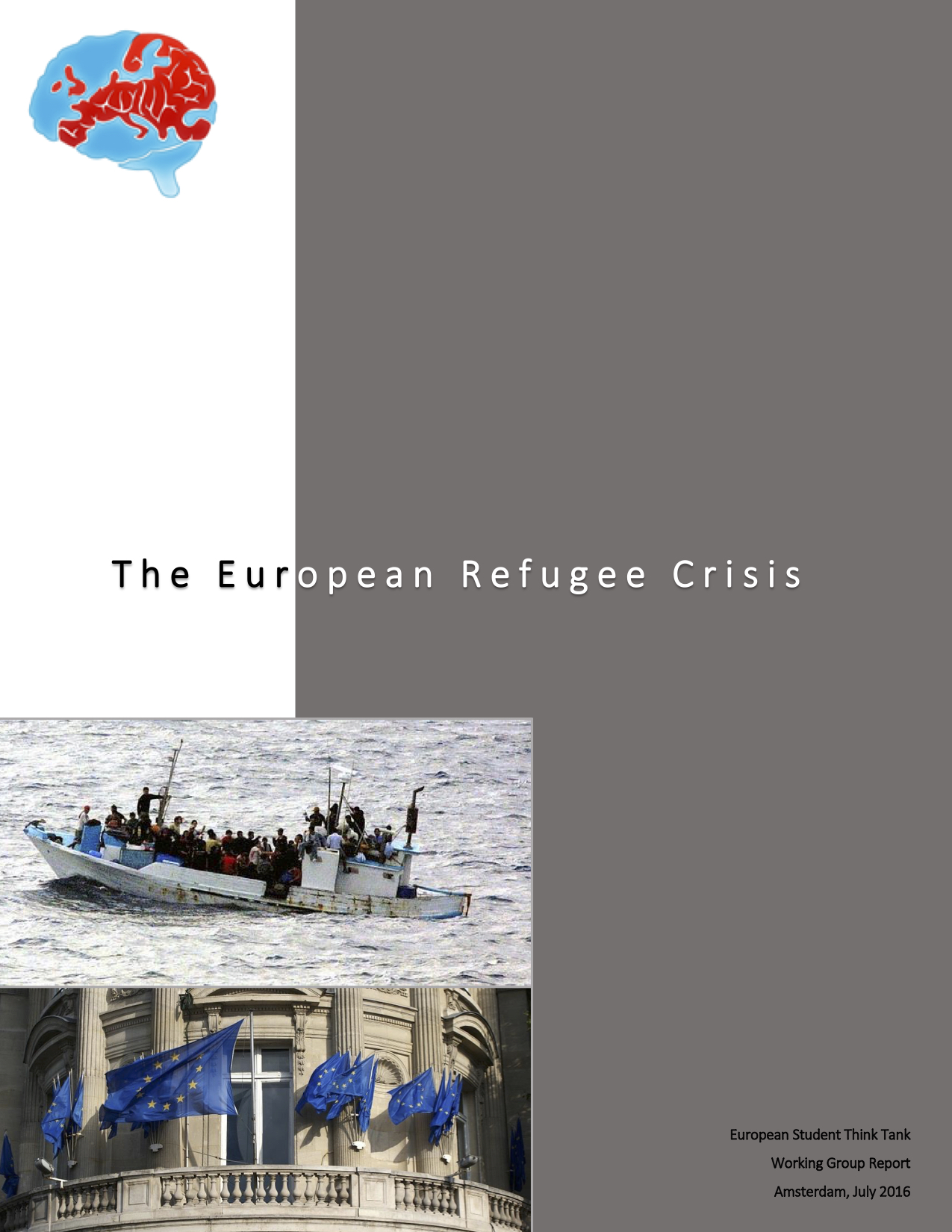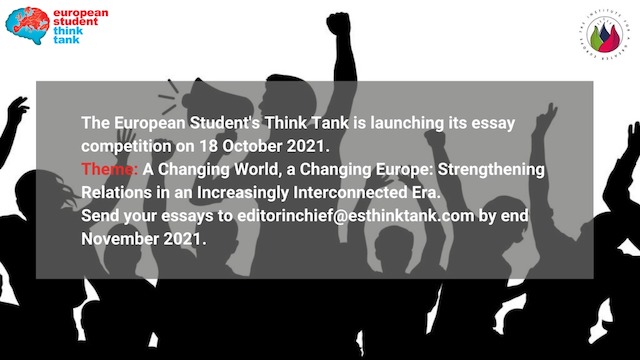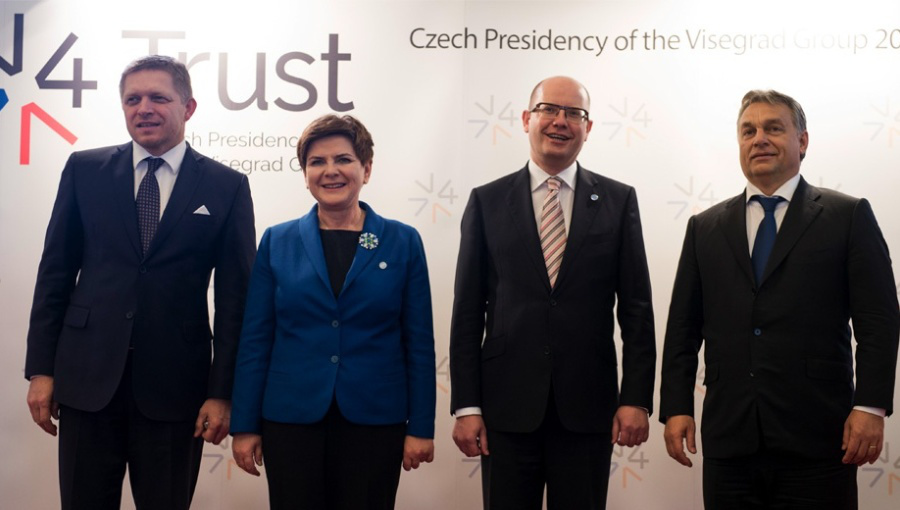
Report coordinated by Hester Mennes, Dutch Ambassador to the EST.

Maartje Smeets, Marlinda van der Hoff, Fiona Naismith, Zeph M. C. van Berlo, Annick Bijkerk, Andrea Wojcik, Basti Keil, Corine Schuuring, Alexandra Deák, Jolinde Dermaux and Anne van Groningen have done an excellent job writing this sharp inclusive report! The EST’s report on the European Refugee Crisis is inspired by the working groups Ambassador Hester Mennes organized on the topic of the refugee crisis. With the participation of former Mayor of Amsterdam Job Choen, Professor Hein de Haas, former co-director of Oxford’s International Migration Institute and an incredible group of authors, Ambassador Mennes’ report provides a historical background, a legal framework and an approach to an integration policy on a social and political scale. On behalf of the European Student Think Tank Board we would like to thank Hester for her brilliant piece of research and her commitment to Human Rights.
Introduction
Over the last eighteen months, media platforms in Europe have been characterised by an enormous number of front pages, in-depth coverage stories and general headlines, dedicated to what is called the European “refugee crisis”. According to data from the United Nations High Commissioner for Refugees (UNHCR), the European Union (EU) has received a record number of refugees and migrants in the last two years: based on estimations from European national police and ministries, around one million persons entered the EU in 2015, of which around 50% is estimated to be from Syria (IOM, n.d.). This total of one million is almost five times higher than the inflow of refugees and migrants to the EU in 2014 (IOM, 2015).
The current influx of people fleeing the (proxy) wars currently raging in Syria and surrounding countries, have kept the EU, and the governments of its member states, on their toes for the last two years. Where different leaders of European countries have expressed that “we” are in a crisis, it is not always clear who or what is implied with this “we” when referring to the crisis, and thus a more critical examination of the crisis and its players seems in place. One could argue that the current crisis is primarily a humanitarian one; a crisis for the people fleeing the wars and looking for a safe place to settle. Additionally though, looking from a European viewpoint, the size of the current influx of asylum seekers itself could be perceived as a crisis for the European Union, in terms of capacity and organisation needed to harbour those in need, and the growing sentiment among some that the non-European refugees should threaten the European values (Wodak & Boukala, 2015). From that perspective, it seems clear that the current crisis is not only a crisis for the EU to deal with, but also a crisis of the EU.
The influx of asylum seekers currently requesting asylum in Europe has brought to
light that the current European asylum system struggles with properly handling these requests. Due to the European legislation currently in place, asylum seekers are not proportionally divided over member states, which has resulted in a situation where a handful of member states have taken in most asylum seekers whereas other member states have been reluctant, or even defiant, when it comes to taking responsibility for a fair share of harbouring those in need. This in turn has put national immigration and integration systems all over Europe under pressure, resulting in not only a crisis on the European level, but at crises on the national level as well.
While the European “crisis” at hand affects all people seeking asylum in Europe, this report focuses on Syrian refugees only. This scope seemed most appropriate since the crisis that is being discussed in the media and in European and member state politics has been focused mostly on Syria and Syrian refugees. The aim of this report is to critically reflect on the issue of objectivity surrounding the current crisis and to offer an overview of the crisis and its critical areas. In order to be able to offer an overview, the crisis is approached from an interdisciplinary angle, taking into account current European legislation, the way this is implemented and understood in member states, and the moderating role of the media. As one of the aims of the current report is to reflect on objectivity, it seems in order to start with clearly defining the key concepts and players of the debate.

Download the PDF here:
EST Report – Final Version

 The ’Ndrangheta’s Infiltration and Threat to European Institutions
The ’Ndrangheta’s Infiltration and Threat to European Institutions  From Paper to Practice: How Grassroots Norms Undermine Gender Rights in Pakistan
From Paper to Practice: How Grassroots Norms Undermine Gender Rights in Pakistan  Exploited Childhoods: The Role of Global Corporations in Perpetuating and Mitigating Child Labour
Exploited Childhoods: The Role of Global Corporations in Perpetuating and Mitigating Child Labour  Human Rights Challenges in Addressing SLAPPs in Media, NGOs and Journalism in the EU
Human Rights Challenges in Addressing SLAPPs in Media, NGOs and Journalism in the EU 


